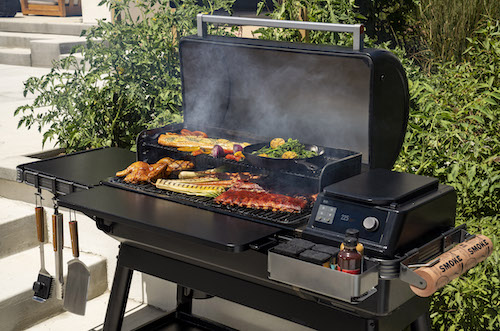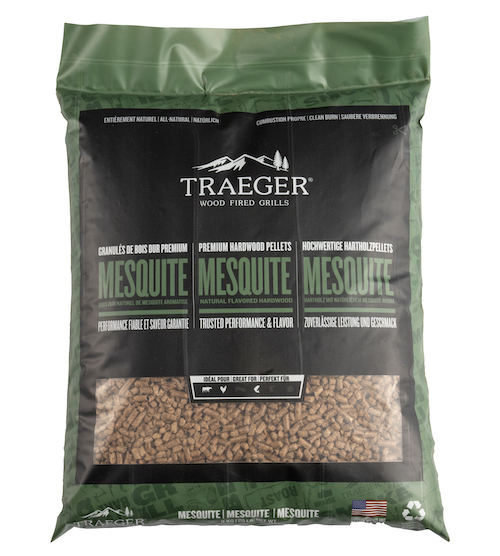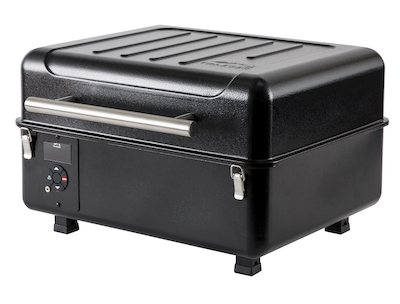Different Types of Grills: What's the Difference Between Charcoal, Gas, Electric and Pellet
Posted by Home Billiards on 9th Mar 2023
What type of grill should you buy?
There was a time when grilling meant the same thing to everyone. But just as the category of coffee has evolved to include the frappuccino and other barely recognizable variations, grilling too has significantly evolved.
Charcoal grills, gas grills, electric grills, wood-pellet grills; with so many options now available on the market, how do you know which one is right for you?
Before putting down the money for a new BBQ, it’s essential to arm yourself with the information you need to make the right call, and that’s exactly what we intend to help you with using the guide below.
Here’s what you’ll learn at a glance:
- The four most popular types of grills
- Their pros and cons
- Their pricing
- The most important features to look for when trying to match grills to your grilling style and lifestyle
Let’s get cooking!
What are the 4 types of grills?
Grills are primarily differentiated by their heat source, mainly charcoal, gas, electric, and pellet.
Charcoal grills
Charcoal is one of the most popular heat sources for grills (there's a good chance the grill you used for backyard BBQs growing up used charcoal).
Other than affordability, the main benefit of charcoal is its built-in heat-retentive quality; once it’s heated up and a coal base is formed, you have cooking heat for a long time without any external stoking required.
This makes charcoal BBQs ideal for situations where electricity or gasoline is limited, such as camping. A little lighter fluid, or even a wood-built fire, is all you need to get started.
Gas grills
Gas grills have served as another BBQing staple throughout the years.
These grills are connected to propane tanks, which push gas through multiple elements under the grill.
When exposed to flame, these elements almost instantly start producing cookable heat. They also stay lit for as long as there is a gas supply from your propane tanks.
Because of this, gas grills are great for quick cookouts, but their directed flame approach makes them more prone to uneven cooking.
Electric grills
Whereas gas grills use open flame as their heat source, electric grills use electrically-heated elements.
The electricity can come from a wall plug, generator, rechargeable battery, or other sources, depending on your model.
Because the heat comes from a heated element and not an open flame, apart from when flammable fat drips onto the element, there aren’t any flames, similar to how most modern stove tops work.
This makes electric grills more suitable for both indoor and outdoor cooking.
Wood-pellet grills
Pellet grills cook food with smoke generated from burning pellets made of compacted sawdust, which come from various wood types, suiting different tastes.
These pellets are poured into a container called the hopper, where they’re then pushed to an area of the grill called the firepot and lit on fire. The heat and smoke from this fire is then directed to and circulated around the grill's cooking area.
This mechanism means that these grills take a little longer to heat up than traditional gas grills but that your food ends up being more evenly cooked with a more robust, smokier flavour.
Still unsure? Here’s our guide breaking down what pellet grills are and how they work.
What is the most popular type of grill?
Traditionally, gas and charcoal grills have been the most popular types of grills.
But more recently, electric grills have grown in popularity, especially electric-powered wood pellet grills.
This even shows in sales data, with the Hearth, Patio & Barbecue Association finding that wood pellet ownership has increased three-fold in the past two years.
Why precisely these grills have become so popular is hard to pin down. From a features standpoint, their versatility and eco-friendliness are likely contributors.

In the past, different types of equipment have better suited different cooking styles and goals (smoker for slow cooking, oven for baking, gas grill for quick afternoon burgers, etc.); modern pellet grills offer all these features in one machine.
With features from conventional ovens and traditional grills, you can smoke, roast, bake, grill, and sear just about anything.
Burning wood pellets for heat – pellets that would otherwise go to waste – without sacrificing traditional grilling features, like smoking also adds a whole new sustainable layer to grilling that didn’t exist before.
Features to consider when comparing grills
If you have multiple tabs open on every possible grill you’re considering, things can get confusing fast.
To help simplify the process of choosing the best grill for your needs, here are the main things to consider.
Fuel source
Certain grills use more sustainable energy sources than others.
If sustainability is important to you, electric and wood–pellet grills will be your top choices, as they’re the easiest on the environment.You can feel especially good about using wood pellets, as they essentially go to waste outside of their use as a fuel source.

But if you’re more worried about ease of access, traditional charcoal or gas grills might be a better choice. With charcoal and propane being available at nearly every convenience store across the country, you’ll rarely ever be without fuel.
Grill maintenance
Do you enjoy thoroughly cleaning your grill after every Q? If not, you might want to go with a grill that doesn’t require much maintenance.
While grill maintenance is affected by what you cook (fattier foods creating more grease, for example), certain grill types and designs make for easier clean-up.
Electric grills and wood-pellet grills produce very little bi-product compared to charcoal, which produces hard-to-clean soot.
Designs that guide fat, grease, and other food debris away from your elements should also be a priority.
Cooking experience
Heat-up time, cooking distribution, and ease of use are also factors worth considering.
For example, gas grills can be lit and ready for cooking in under a minute, whereas charcoal grills and wood-pellet grills can take longer to heat up.
Gas grills are also more prone to uneven cooking, as the heat source is more directed over the element. Pellet grills, on the other hand, distribute heat much more evenly around your food.
Also, how seasoned of a grill master are you? Certain grills are more beginner-friendly than others, especially if you plan on smoking.
With traditional smokers using large pieces of wood, wood type, size, and consistency can all affect cooking time and heat distribution. This means a lot more checking in and manual changes throughout the cook on your part.
But more modern wood-pellet grills are a lot easier to use. With digital controls similar to an oven, different pellets suiting different flavours, automatically maintaining temperature throughout, and even controlling your cook via Wifi, they’re a lot easier to use.
Portability
Do you take your Q on the road a lot, or do you mainly host cookouts at your house?
This is an important question to ask to make sure you choose an appropriately-sized grill for your lifestyle.

That big new grill might look great on your deck, but if that’s not where you plan on doing most of your cooking – if you’re going to be hauling it back and forth between camping, picnics, and other trips – a smaller model might be more up your alley.
Seasonal performance
Since we live in Canada, it's important to consider how well your grill will perform during the winter months whether you continue grilling or not. This is because winter presents unique cooking and storage needs depending on the type of grill you want to buy. In general, here's what you need to know about grilling in the winter:
Pellet Grills
Pellet grills are generally considered the best performers in winter conditions:
- Better insulation and heat retention, maintaining more consistent temperatures in cold weather
- Moderate preheating time, falling between charcoal and gas grills
- Stable temperature in windy conditions, though slight fluctuations may occur
- Require quality wood pellets for efficient burning in cold weather
Charcoal Grills
Charcoal grills face some challenges in winter:
- Slowest to preheat among all grill types
- Struggle with maintaining consistent temperature, especially in windy conditions
- May require more frequent refueling due to increased fuel consumption in cold weather
Gas Grills
Gas grills have mixed performance in winter:
- Fastest to preheat among all grill types
- Can experience flame instability and pressure issues in windy conditions
- May have difficulty maintaining consistent temperatures in very cold weather
Electric Grills
Finally, electric grills generally:
- Maintain consistent temperatures regardless of ambient temperature
- Are less affected by wind compared to other grill types
- May require longer preheating times in very cold weathe
For more details check out our articles:
Price
Perhaps the most straightforward filter to narrow down your grilling options is price.
Because they’ve been around for so long, charcoal and gas grills often come with a lower price tag than wood-pellet grills.
But as they continue to grow in popularity, pellet grills are quickly catching up in price, with entry models starting as low as $599.
There are other long-term savings to consider, such as the much greater burning efficiency of wood pellets over charcoal.
Which grill should I buy?
If you don’t care about the nitty gritty and just want to know which grill is best for you, no problem; we've got you covered with the breakdown below.
Note: We’re lumping wood pellet and electric grills together because they offer many of the same benefits and often go hand-in-hand.
Choose a charcoal grill if you want:
- Affordability above all else
- Self-sustaining heat source after initial lighting
- A heat source that’s easy to find and buy
Choose a gas grill if you want:
- Quick heat-up time
- Diversity of options and sizes
- Easy-to-control heat source
- A heat source that’s easy to find and buy
Choose a wood pellet grill if you want:
- Eco-friendly grilling
- Cooking versatility
- Easy cooking with modern controls
- Even cooking
- Latest grilling technology
- The option to cook inside and outside
Learn more about your grilling options
Wood-pellet may be shaping up to be the next big thing in grilling, but if you’re still unclear, learn more about their pros, cons, and inner-working by reading our guide on pellet grills and how they work.
Or, if you’ve heard enough and are ready to decide, check out our Traeger buying guide for help choosing the right model for your needs!

